Coding according to GHS | Symbol | Designation | Description |
| GHS01 |  | Explosive | Liquids, solids and mixtures that explode due to impact, friction, heating, fire or other sources of ignition (e.g. electrical contacts). |
| GHS02 | 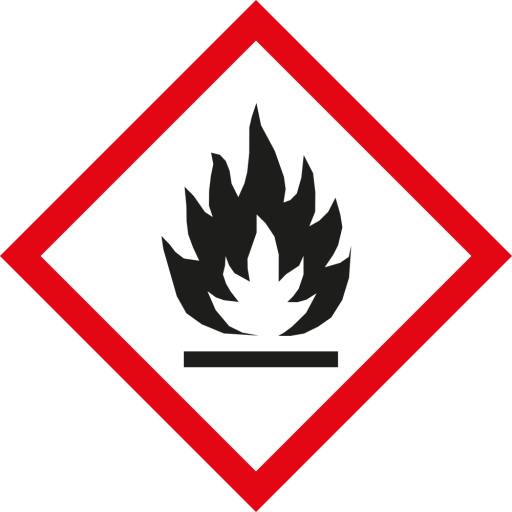 | Highly flammable | Flammable gases, liquids, aerosols and solids. Substances and mixtures which, in contact with water, emit flammable gases, spontaneously combustible and self-reactive liquids and solids, substances and mixtures capable of self-heating. |
| GHS03 |  | Oxidising | Oxidising and flammable solids, liquids and gases. |
| GHS04 |  | Gas under pressure | Gases and gas mixtures contained in a container, compressed gases (liquefied under pressure), dissolved and refrigerated liquefied gases. |
| GHS05 | 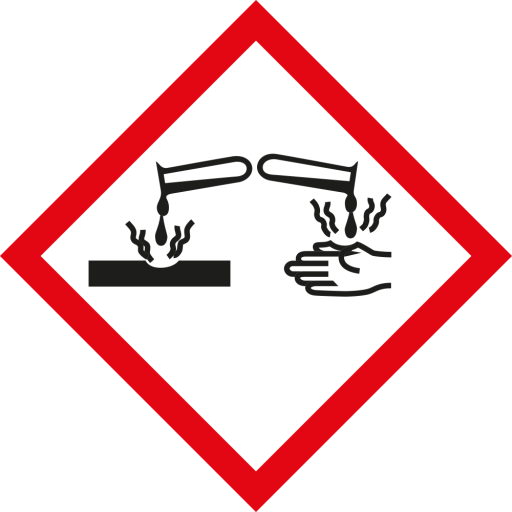 | Corrosive | Substances and mixtures which are corrosive to metal and may damage or destroy it. Causes severe skin burns and eye damage. |
| GHS06 | 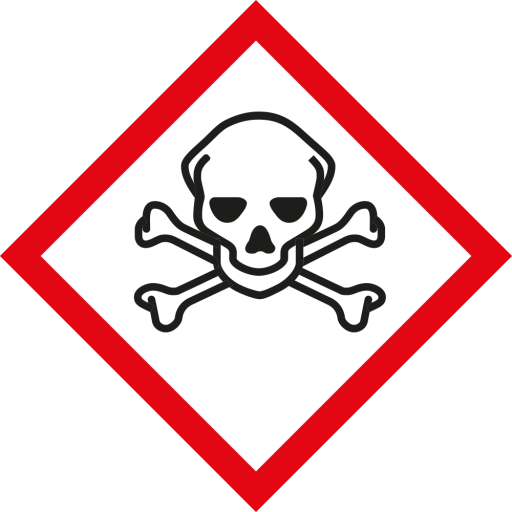 | Highly toxic | Chemicals which, even in small quantities, cause serious damage to health or death after ingestion, inhalation or contact with the skin. |
| GHS07 | 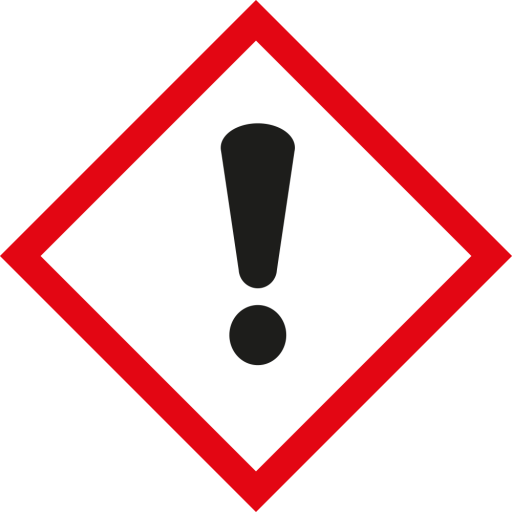 | Caution Dangerous | Less harmful substances or mixtures. Acutely harmful after inhalation, ingestion or skin contact, irritation of the skin or eye, sensitisation of the skin (caused allergic skin reactions). |
| GHS08 | 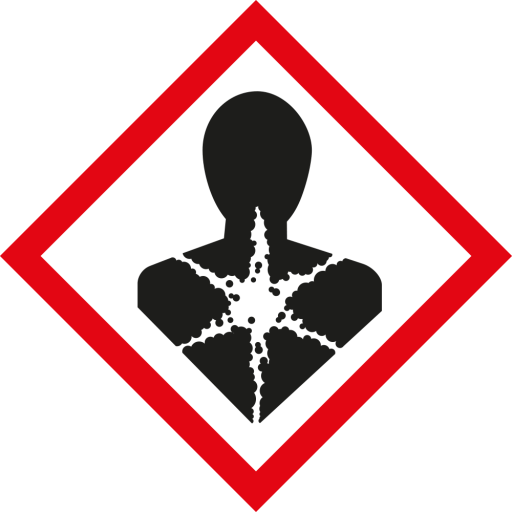 | Harmful to health | Substances and mixtures with organ-specific toxic effects or long-term health hazards such as carcinogenic, mutagenic or reprotoxic effects. Liquids which cause severe lung damage after ingestion (aspiration hazard) and substances which may cause allergies or breathing difficulties when inhaled (respiratory sensitisation) and show specific organ toxicity after single or repeated exposure. |
| GHS09 | 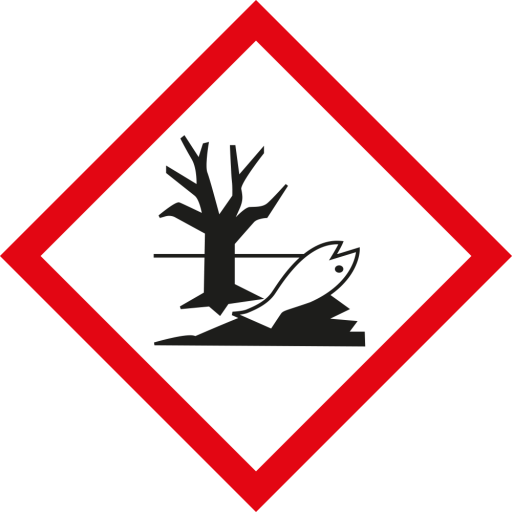 | Harmful to the aquatic environment | Substances and mixtures that have an acute and/or long-term harmful effect on aquatic organisms, i.e. are acutely or chronically harmful to water. |